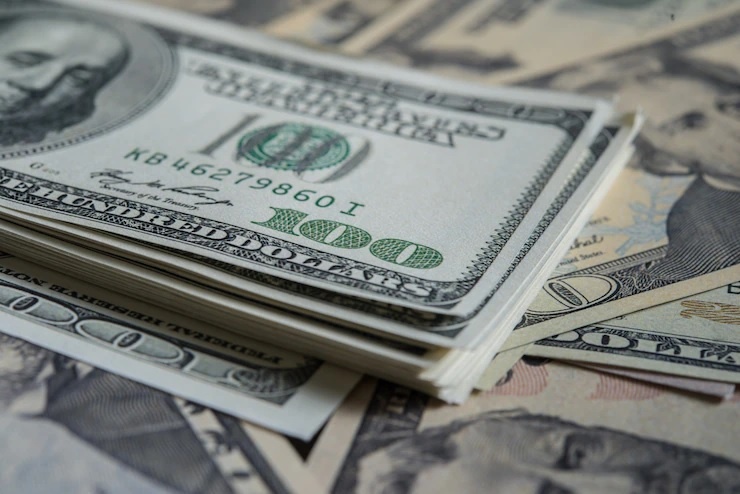Provision kinks leading to further study of bad debts
 |
| Provision kinks leading to further study of bad debts, Photo:freepik.com |
The National Assembly’s Standing Committee last week agreed to extend Resolution No.42/2017/QH14 dated 2017 on pilot settlement of bad debts of credit institutions to the end of 2023. Previously, the State Bank of Vietnam (SBV) suggested that the implementation of Resolution 42 could be extended until 2025. However, a comprehensive legal corridor for bad debt settlement of credit institutions in a longer timeframe is being studied.
SBV Governor Nguyen Thi Hong noted that the resolution had been in place for five years, thus non-performing loans (NPL) of credit institutions had been managed accordingly. The NPL ratio on the balance sheet was under control, at under 2 per cent.
As of December 2021, credit institutions in Vietnam dealt with $16.53 billion in NPLs after Resolution 42 came into force.
“Despite Resolution 42’s great achievements, there are still considerable hurdles in practice. It’s tough and time-consuming to put in place the necessary measures, as well as to coordinate them with those taken by other relevant departments, agencies, and locations,” Hong said at last week’s meeting of the National Assembly Standing Committee.
Additionally, there are issues resulting from Resolution 42’s provisions, such as collateral administration agreements, conflicts over the competence to handle secured assets, and credit contract disputes between lenders and borrowers, among others.
Meanwhile, the majority of complaints on bad debts at credit institutions have been disputes concerning credit contracts rather than bad debts themselves.
“The absence of legislation on simplified processes for disputes over credit contracts creates constraints for credit institutions in NPL management,” stated the SBV governor.
She also estimated that the on-the-balance-sheet NPL ratio, debts sold to Vietnam Asset Management Company, and debts that have the potential to become bad debts reached 6.31 per cent as of December 31. The amount of bad debts that have not been settled in accordance with Resolution 42 is high, at $17.94 billion.
After dealing with a large quantity of bad debt during 2018-2019, the pace of NPL settlement in 2020 and 2021 has been slowed down due to the health crisis.
Phan Thanh Hai, deputy general director of state-owned lender BIDV, acknowledged the efficiency of Resolution 42, but he also stated that there was still a lack of guidance on how to appraise these debts in an accurate fashion. As of now, the value of the underlying debt is solely determined by the value of the collateral pledged as security.
“Consequently, in order to formulate a professional, publicly accessible, and transparent debt trading market, it is required to have a legal basis for determining debt value,” Hai said. “Besides this, banks should substantially enhance their risk reserve buffers to ensure they are prepared for unpredictable events.”
Data compiled by market analyst provider FiinGroup showed that Vietcombank’s loan loss reserve (LLR) ratio of 424 per cent is the highest in the sector, which provides the bank with vast flexibility to lower its provisioning to boost earnings in 2022 without sacrificing its asset quality. Other lenders, such as Techcombank, ACB, and MB are also pursuing a prudent approach with high loan LLRs. Meanwhile, OCB, BAC A BANK, National Citizen Bank, and PGBank are reporting low LLRs.
Economist Nguyen Tri Hieu noted that there must be an agreed beginning offer for the auction of bad debts in Vietnam.
“I propose a US-inspired auction with a starting offer equal to the debt’s value plus one US dollar. The winning bidders will pay money to banks and will become the legal owners of the debt-linked collateral they have purchased. A bank takes over ownership of the collateral if no one else bids higher than the beginning price,” he said.
“Legislation on personal bankruptcy should also be adopted by the National Assembly since there is now no such law in Vietnam. In the United States, bankruptcy is a legal option for all businesses,” Hieu added.
What the stars mean:
★ Poor ★ ★ Promising ★★★ Good ★★★★ Very good ★★★★★ Exceptional
Related Contents
Latest News
More News
- 0.1 per cent tax proposed on each transfer of digital assets (February 05, 2026 | 17:27)
- Ministry of Finance tightens policy delivery at start of year (February 05, 2026 | 17:26)
- Vietnam steps up market reforms as FTSE Russell reviews upgrade progress (February 05, 2026 | 17:20)
- 2025 profits mixed amid strong energy and farming results (February 05, 2026 | 17:18)
- Cashless payments hit 28 times GDP in 2025 (February 04, 2026 | 18:09)
- SSIAM and DBJ launch Japan Vietnam Capital Fund (February 04, 2026 | 15:57)
- Banks target stronger profits, credit growth in 2026 (February 04, 2026 | 15:43)
- Vietnam on path to investment-grade rating (February 03, 2026 | 13:07)
- Consumer finance sector posts sharp profit growth (February 03, 2026 | 13:05)
- Insurance market building the next chapter of protection (February 02, 2026 | 11:16)

 Tag:
Tag:




















 Mobile Version
Mobile Version